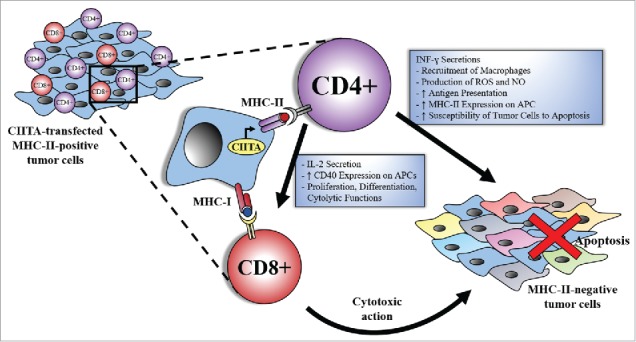Figure 1.

CIITA-transfected MHC-II-positive tumor cells trigger an optimal, CD4+ TH cell dependent, anti-tumor immune response. CIITA-transfected MHC-II-positive tumor cells act as surrogate APCs for TH cell priming against tumor antigens. TH cells exert their function through different mechanisms that could be CD8+ T cell-dependent or independent. Within the first category, TH cells secrete IL-2, that is important for proper activation and proliferation of CD8+T cells and enhances the cytolytic function of CD8+ T cells. On the other hand, TH cells boost the immune response through CD8-independent mechanisms, such as INF-γ secretion. The latter is responsible of the recruitment of macrophages, production of ROS and NO, enhancement of antigen presentation by increasing CIITA expression and consequently MHC-II expression on newly infiltrated APCs, and augmentation of the tumor cells' susceptibility to apoptosis. All of these mechanisms allow the immune system to reject not only the MHC-II-positive tumor cells but also the MHC-II negative tumor cells and possibly better counteracting tumor escape variants that may originate due to the process of immunoediting.
